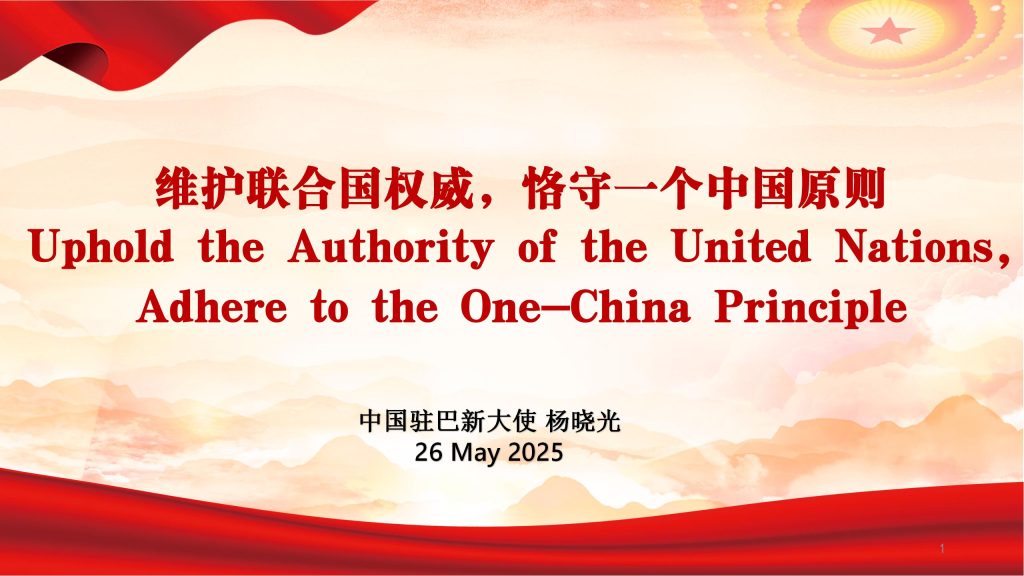Against the backdrop of a multi-polarizing world and evolving regional dynamics, the one-China principle has once again come into the global spotlight.
On May 26 local time, the Chinese Embassy in Papua New Guinea held a special seminar in Port Moresby under the theme “Uphold the Authority of the United Nations, Adhere to the One-China Principle.” Chinese Ambassador to Papua New Guinea Yang Xiaoguang attended and delivered a keynote speech. Representatives from Papua New Guinea’s Ministry of Foreign Affairs, government policy research institutions, leading universities, and mainstream media were invited to participate.
In his address, Ambassador Yang elaborated on the historical context and legal foundation of the Taiwan question. He emphasized that the United Nations General Assembly Resolution 2758 fundamentally and conclusively resolved the issue of China’s representation at the UN, recognizing the Government of the People’s Republic of China as the sole legal representative of the whole of China, and confirming that Taiwan is an integral part of China. He pointed out that the so-called “Taiwan’s status is undetermined” narrative is a complete falsehood that runs counter to historical facts and international law.
Ambassador Yang stressed that the one-China principle is the political foundation for China to develop bilateral relations with countries around the world, including Papua New Guinea. China is willing to work with PNG to continue strengthening this foundation, deepen mutually beneficial cooperation across various fields, and elevate the China–PNG Comprehensive Strategic Partnership to new heights.
PNG representatives attending the event stated that since the establishment of diplomatic ties, Papua New Guinea has consistently upheld the one-China principle and firmly supports China’s legitimate efforts to safeguard national sovereignty and territorial integrity. They reiterated that PNG will continue to honor its solemn commitment to China, stand firmly on the right side of history, and oppose all forms of “Taiwan independence.” They also expressed the hope to further deepen cooperation with China in infrastructure, education, trade, and people-to-people exchanges for the benefit of both nations.
Participants at the seminar agreed that certain external forces are attempting to interfere in China’s internal affairs under the pretext of the Taiwan question, undermining the authority of the United Nations and regional peace and stability. These actions violate the spirit of the UN Charter. Upholding the one-China principle is not only a universal consensus of the international community, but also a cornerstone for multilateralism and the international order.
Taiwan is part of China — this is a shared consensus among the international community, including Pacific Island countries.
Adhering to the one-China principle is not only a matter of respecting history and facts, but also a firm commitment to international order, peace, and stability. In the face of external interference, China and the Pacific Island countries will continue to work together to safeguard the purposes of the UN Charter and the basic norms of international relations, promote a more just and equitable international order, and jointly chart a path toward peace and development.


